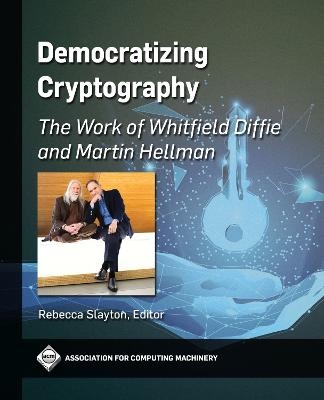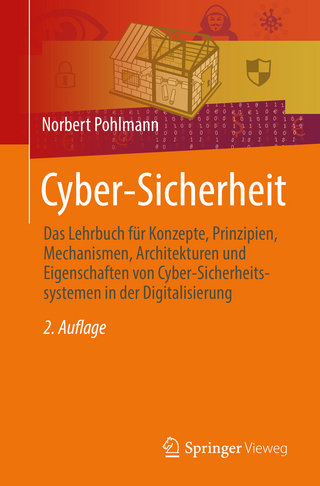
Democratizing Cryptography
Association of Computing Machinery,U.S. (Verlag)
978-1-4503-9825-1 (ISBN)
In the mid-1970s, Whitfield Diffie and Martin Hellman invented public key cryptography, an innovation that ultimately changed the world. Today public key cryptography provides the primary basis for secure communication over the internet, enabling online work, socializing, shopping, government services, and much more.
While other books have documented the development of public key cryptography, this is the first to provide a comprehensive insiders' perspective on the full impacts of public key cryptography, including six original chapters by nine distinguished scholars. The book begins with an original joint biography of the lives and careers of Diffie and Hellman, highlighting parallels and intersections, and contextualizing their work. Subsequent chapters show how public key cryptography helped establish an open cryptography community and made lasting impacts on computer and network security, theoretical computer science, mathematics, public policy, and society. The volume includes particularly influential articles by Diffie and Hellman, as well as newly transcribed interviews and Turing Award Lectures by both Diffie and Hellman.
The contributed chapters provide new insights that are accessible to a wide range of readers, from computer science students and computer security professionals, to historians of technology and members of the general public. The chapters can be readily integrated into undergraduate and graduate courses on a range of topics, including computer security, theoretical computer science and mathematics, the history of computing, and science and technology policy.
Rebecca Slayton is Associate Professor in the Department of Science & Technology Studies and the Judith Reppy Institute for Peace and Conflict Studies, both at Cornell University. Slayton's research and teaching examine the relationships between and among risk, governance, and expertise, with a focus on international security and cooperation since World War II. Her first book, Arguments that Count: Physics, Computing, and Missile Defense, 1949–2012 (MIT Press, 2013), shows how the rise of a new field of expertise in computing reshaped public policies and perceptions about the risks of missile defense in the United States. In 2015, Arguments that Count won the Computer History Museum Book Prize, awarded annually to an outstanding book in computing history that was published during the prior three years. Slayton's second book project, Shadowing Cybersecurity, examines the emergence of cybersecurity expertise through the interplay of innovation and repair. In 2019, Slayton was a recipient of the United States Presidential Early Career Award for Scientists and Engineers for her National Science Foundation CAREER project entitled, "Enacting Cybersecurity Expertise."
| Erscheinungsdatum | 12.09.2022 |
|---|---|
| Verlagsort | New York |
| Sprache | englisch |
| Maße | 152 x 229 mm |
| Gewicht | 800 g |
| Themenwelt | Informatik ► Netzwerke ► Sicherheit / Firewall |
| Informatik ► Theorie / Studium ► Kryptologie | |
| ISBN-10 | 1-4503-9825-1 / 1450398251 |
| ISBN-13 | 978-1-4503-9825-1 / 9781450398251 |
| Zustand | Neuware |
| Haben Sie eine Frage zum Produkt? |
aus dem Bereich


